| Reviews & Columns |
|
Reviews DVD TV on DVD Blu-ray 4K UHD International DVDs In Theaters Reviews by Studio Video Games Features Collector Series DVDs Easter Egg Database Interviews DVD Talk Radio Feature Articles Columns Anime Talk DVD Savant Horror DVDs The M.O.D. Squad Art House HD Talk Silent DVD
|
DVD Talk Forum |
|
|
| Resources |
|
DVD Price Search Customer Service #'s RCE Info Links |
|
Columns
|
|
|
Lieutenant: The Complete Series, Part 2, The
Reviewer's note: Having already wrote a review for the first half-season of The Lieutenant, I'll port over part of that article here, adding new thoughts on the episodes featured in this set.
Impressive, little-seen drama from pre-Star Trek producer Gene Roddenberry. Warner Bros.' M.O.D. (manufactured on demand) service, the Archive Collection, catering to movie and TV buffs looking for those hard-to-find library and cult titles, has released The Lieutenant: The Complete Series, Part 2, a 4-disc, 13-episode collection representing the second half of the NBC drama's 1963-1964 season. Sporting an intriguing backdrop for an episodic drama―life at "peacetime" Marine Corps Base Camp Pendleton in San Diego, California―The Lieutenant, starring Gary Lockwood and Robert Vaughn, only lasted a year against powerhouse Jackie Gleason on Saturday nights before it was canceled. However, judging by the quality of the scripts for this first half of the season, it's a pity this fine, unusual drama anthology didn't complete a full tour. As a cool bonus, the expanded episode To Kill a Man, released as a feature film overseas in 1964, included here, along with its original trailer. Nice.
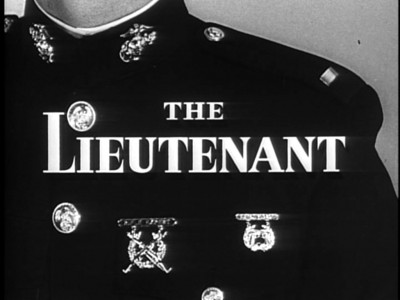
The United States of America, 1963. Marine Corps Base Camp in San Diego, California. Second Lieutenant William Tiberius Rice (Gary Lockwood), a recent graduate of the United States Naval Academy at Annapolis and officer's training school at Marine Corps Base Quantico, now finds himself in charge of a rifle platoon out of Bravo Company. His immediate superior is Company Commander Captain Raymond Rambridge (Robert Vaughn), an icily-competent officer and veteran of the Korean Conflict who only demands one thing from his men: absolute adherence to the book. The reason for this rigidity? Marines are the first to fight, and without warning, the men under Rambridge's and Rice's command could be flying or sailing into harm's way, with only their extensive training and strict discipline standing between survival and dying on a foreign shore. 2nd Lt. Rice may live off-base in a swinging beachside apartment, with his fair share of out-of-uniform off-duty hours, free to pursue a variety of pretty women. However, at any moment, the alert siren could sound, signaling his return to base...and possibly a call to arms.
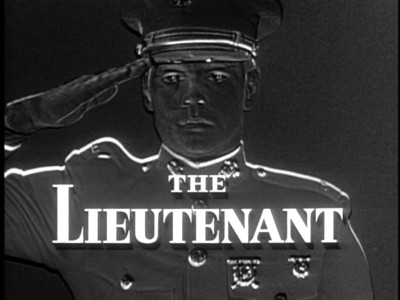
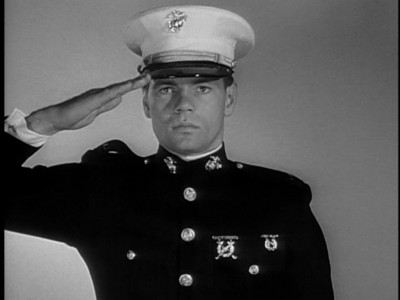
Often mentioned (but usually only in passing) whenever Star Trek creator Gene Roddenberry's television career is detailed, The Lieutenant has been a decades-long elusive, tantalizing "must see" for hard-core fans of the producer's work. The Lieutenant's unsuccessful single season in 1963-1964 effectively eliminated any chance at syndication reruns, so I would imagine the majority of Roddenberry fans haven't seen this yet...if the majority is even interested in seeking it out (if The Lieutenant had a sci-fi angle, fan demand that craves anything even remotely connected to Star Trek would have instigated a release years ago). I grew up watching reruns of Star Trek religiously every afternoon, year after year, but with that said, I'm no expert on the show and certainly not on Roddenberry. So I didn't come to The Lieutenant looking for connections or shared themes or motifs that cross over into Federation territory. I approached the series within the context of late 50s early 60s network adventure dramas (and quasi anthologies) like Route 66 or The Fugitive or Gunsmoke―indeed much like the shows Roddenberry wrote for at the start of his career: Highway Patrol and Have Gun, Will Travel. And within those parameters, The Lieutenant fared quite well.
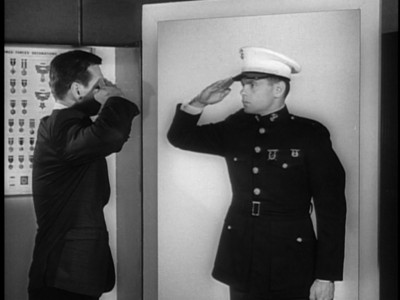
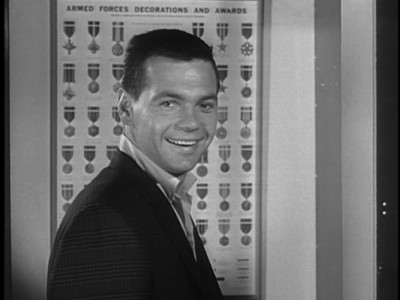
In 1963, when The Lieutenant premiered, comedy was king in the network ratings (fully half of the Top 30 Nielsen programs were comedies), with quiz and variety shows coming in second (8 in the top 30). Of course, straight drama was still popular, but more often than not it was slotted and couched into other genre frameworks: Westerns (Bonanza, The Virginian), kiddie shows (Lassie), medical dramas (Dr. Kildare), mysteries (Perry Mason), and action/adventure shows (The Fugitive). The Lieutenant's hook was that it told stories framed by a contemporary military experience, unlike rising hit Combat!, which was set during WWII, and not unlike police procedurals such as Dragnet that gave the viewer a glimpse of the inner workings of an unfamiliar environment inbetween the action and dialogue. One assumes the producers received full cooperation from the Marines, considering the extensive on-location shooting at Pendleton, as well as all the authentic hardware and uniforms; it's a little unnerving, though, seeing the real recruits in some of the footage―one wonders how many of them would soon be shipped off to Vietnam (and it's important to note that with cooperation no doubt came script approval from the D.O.D.).
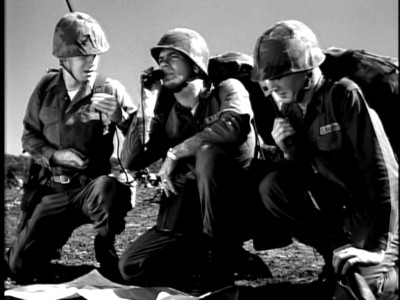
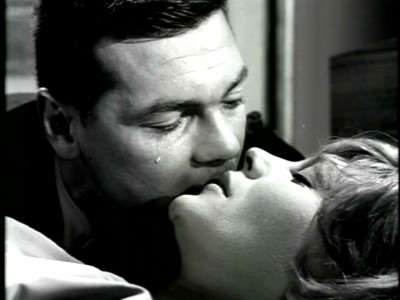
I've always had this little pet theory―completely unsubstantiated―that how appealing a title or credit sequence comes off, is somehow linked to how popular the TV series is with the public: look at Alfred Hitchcock, or Gilligan's little theme song, or Mannix's split-screen titles. The Lieutenant's title sequence is initially quite intriguing. They start with a reverse, negative image of Lockwood in his uniform, which corrects itself, before Lockwood dressed as a civilian salutes his Marine-uniformed image in a mirror. It's a nice metaphor for the show: who is he? Bill Rice, a questioning young man...or 2nd Lt. William Tiberius Rice, rigid, proud Marine officer? However...the producers completely blow this interesting little visual by then having Lockwood look directly into the camera and pull a goofy little smile. What is this: Gomer Pyle? (...which was nothing more than The Lieutenant minus the drama and way-plus with the corn and slapstick). It's an unnerving jar every time it pops up, particularly when The Lieutenant (at least during these first 16 episodes) is about as far away from a sitcom as you can get.
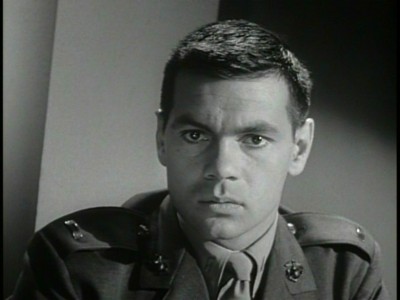
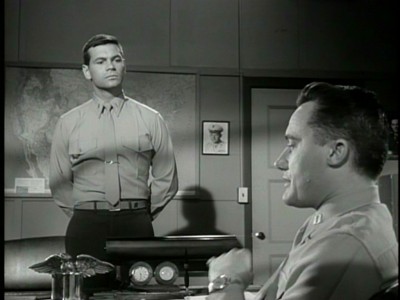
If you're primarily a Star Trek/Roddenberry fan, and you haven't seen too much straight drama from that time period, you might be tempted to declare The Lieutenant "groundbreaking" in the mature themes it tackles. However, that kind of startled recognition of how good television used to be usually only comes to newer viewers who have read and been told that 50s and 60s TV was a "vast wasteland" of inane, soulless products calculated to "merely" entertain and sell soap. Of course that's elitist, ill-informed nonsense, and The Lieutenant is a good refutation of that commonly held misconception. As with any good episodic or quasi-anthology drama, the framework is key. In Route 66 and The Fugitive, the enforced "wandering" of the lead characters enabled the writers to cross their paths with a multitude of interesting strangers with interesting stories. With The Lieutenant, the peace-time military base setting proves supple-enough to accommodate both action-oriented set-pieces (like all those chase scenes in The Fugitive and fistfights in Route 66) and more intimate, personal drama.
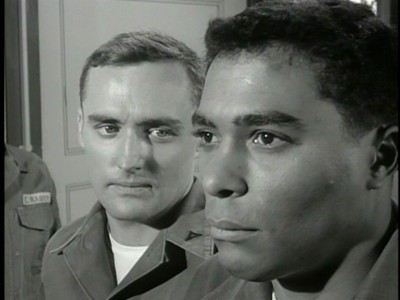
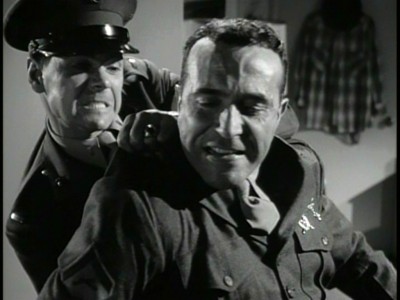
And with that military framework, it's not surprising that the majority of the stories focus on a few recognizable themes involving life in the service. Now, a few episodes in this second half of the season use The Lieutenant's unusual backdrop as just that: window dressing for plots that could be plugged into any anthology format. Between Music and Laughter features a well-written and performed duet with Vaughn and guest star Patricia Crowley as his ex-wife, with Crowley trying to rekindle their romance. It's nice...but it could have had any backdrop. Interlude, with sexy Joanna Moore in a god-awful wig, is even more detached from the military angle: it's a "disease of the week" episode that could very well have been a reworked story from M-G-M's other "young man finding his way in the world" series, Dr. Kildare. Capp's Lady and Operation Actress work in the military angle somewhat better, but again, either story's focus on potential embarrassment for a soldier's career should he marry a woman of "questionable" character (remember...it's 1964), could be applied to any career as seen through the morays of network TV at that time (a young school teacher, a young politician, a young doctor).
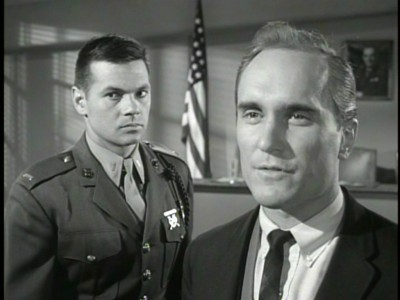
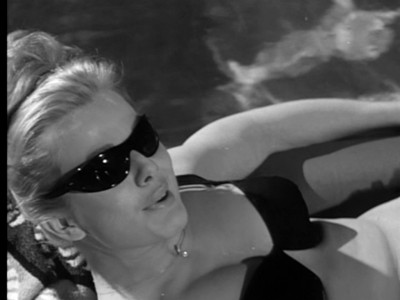
As with the first 16 episodes of this season, the harrowing physical and emotional environment of the military―and the toll it takes on the soldier and his family― is the most consistently displayed theme here in this second set of shows. In the Highest Tradition, the familiar tale of a soldier getting credit for heroism he feels he didn't earn is given a sincere treatment, aided by Martine Bartlett and Andrew Duggan's usual solid support (future Roddenberry stars Leonard Nimoy and Marjel Barrett score, too, as Hollywood hustlers making a movie about Duggan). In The War Called Peace, when Rice goes undercover to evaluate security at a missile base, base commander Major Denver Pyle not only has to accept he's not suited to dealing with temperamental, cynical scientists like Lloyd Bochner (perfectly cast), but also that he needs to let his widowed daughter-in-law, Donna Anderson, go live her own life away from the memory of his dead hero son. Both Man With an Edge and Mother Enemy use the same plot device―Rice must decide if a compromised soldier can be given a clearance/recommendation―for looks at two very different examples of Marine recruits. Chad Everett, all-American football player and son of the Chief of Staff, has to succeed or else, according to the demands of his family honor...even if he has to cheat to win, while Walter Koenig, son of a Commie agitator, is a figure of suspicion because of his mother's activities. Written by Robert J. Shaw, "progressive" (exactly) Neva Patterson tries to twist the Declaration of Independence into a socialist call-to-arms, something loyal Chekov is having none of; he says it's an honor to be denied his promotion because the Marines should and need to question his background―an about-face that sounds like a requirement by the script-supervising Marine Corps (this throw-back to I Led Three Lives even has a ridiculous, stereotypical character that thinks Chekov is a Commie because he...reads books).
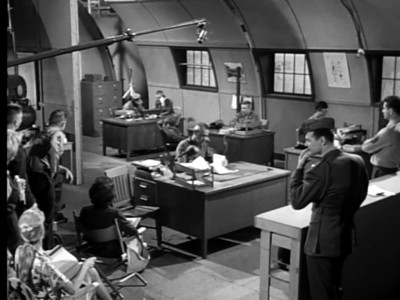
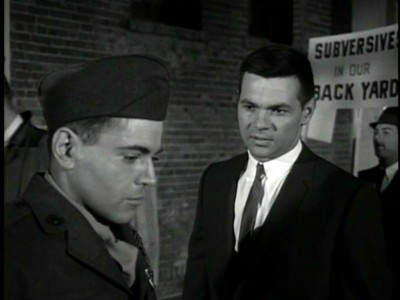
With the producers creating the neat trick of having Rice be both new at his job and yet still in command of lower-ranked men, the writers continue to mature Rice into his role as inexperienced leader (without combat experience, a fact that clashes with many of his older, Korean War vet colleagues). In the terrifically-suspenseful actioner, Green Water, Green Flag, written and directed by series regulars Sy Salkowitz and Leon Benson, a massive war game maneuver with Rice thrust in the position of platoon leader (when Rambridge is stricken with appendicitis) proves almost to be the young lieutenant's undoing when he clashes with a former Academy tormentor, Jan Merlin. In the end, Rice learns the lesson that is constantly drumbeated in The Lieutenant: differences―any differences―between men at war are to be put aside. Teamwork is everything. To Set it Right, the race-based, Defiant Ones-like episode that infamously never aired during The Lieutenant's original run, is framed as yet another opportunity for Rice to expand his command capabilities―a situation that, realistically, doubtful Rambridge questions as more of an opportunity for searching, questioning Rice to experiment in sociology. Don Marshall is better when they let his character get angry and snotty about the condescending treatment he believes he's getting from the Marines and specifically Rice, but Dennis Hopper steals the show with a jangly, wired performance as a bigot who, predictably, learns to apologize and laugh along with his "enemy" (a last-minute hail mary resolution/compromise that undercuts much of the complexity of the episode...and which still didn't help get the episode aired). Tour of Duty, written by Art Wallace, is a solid entry in the "Rice as evolving leader" theme, with Rice pulling duty as DO of the San Diego Shore Patrol Headquarters. Well-meaning but naïve do-gooder Rice lets hothead Ricardo Montalban have his shore leave, against regulations, and it's a race against time before Montalban kills the man he suspects of killing his wife in a car accident (Montalban is excellent in a fierce performance; his final confrontation with Lockwood is an interesting discussion of war and combat and death―something the untried Rice can't really understand).
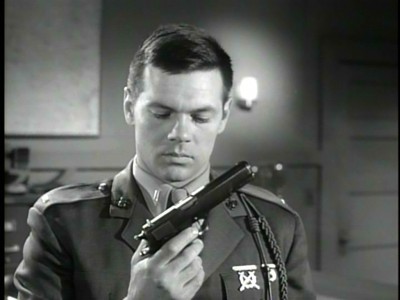
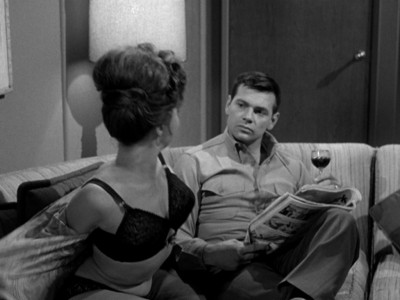
The stand-out episode in this set (and in the whole series) is ironically the last one: To Kill a Man. One might assume that scripter Gene Roddenberry already knew the show was being canceled when he wrote this, since he has Rice overseas, requesting a permanent posting in "Southeast Asia" (read: Vietnam). If Roddenberry didn't know the show was out, then we can only wonder how fascinating (and prescient) The Lieutenant would have been, had the networks allowed Rice to continue his adventures there. As it stands, To Kill a Man is a remarkably tense outing, not so much for the subtext of Rice questioning his own ability and desire to kill another human being (he states he hates the idea of it), but because Roddenberry is able to foreshadow that uniquely bizarre atmosphere, present in so many later Vietnam war movies, of our soldiers suddenly and quite inexplicably thrust from the safe confines of American-controlled military headquarters and bases, out into a dangerous jungle where they don't know who the enemy is, or what the rules are there. Rice, engaged as a courier to deliver plans for an advanced radio locator system, is told he's the envy of other officers who would "give their eye teeth" to go to Southeast Asia. Once there, he's told he can just deliver the papers to liason James Shigeta right there at the airport, but Rice asserts his desire to go "in country" and deliver the papers himself. En route to the base via chopper, the small group draw fire over dense enemy territory and suddenly, frightened Rice is down, in the jungle, with men dead all around him. How the episode works out between Shigeta and Lockwood is fairly predictable (you'll guess the "twist" right away), but clearly, in hindsight, To Kill a Man gave the few viewers who saw it an early, eerily accurate view of what was soon to go down in Vietnam―certainly a first for a network drama at that time. After watching this and the other episodes of The Lieutenant, the viewer is once again reminded of the missed opportunity created by its early cancellation.
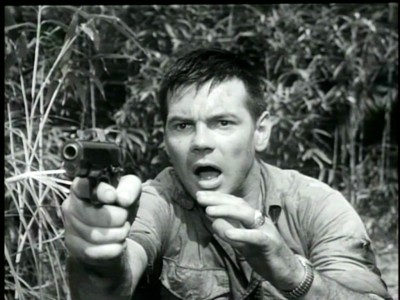
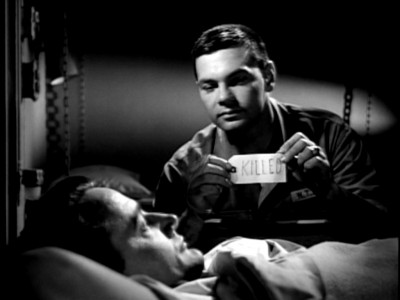
The DVD:
The Video:
The full-screen, 1.33:1 black and white transfer for The Lieutenant: The Complete Series, Part 2 looks terrific: mostly solid blacks that hold, a razor-sharp image, few if any blemishes, and no compression issues (only Green Water, Green Flag looked suspicious to me, with a VHS-duped, noisy image that spelled trouble finding original materials).
The Audio:
The Dolby Digital English mono audio track is clean, with low hiss and no subtitles or closed-captions available.
The Extras:
As a cool extra, Warner Bros. has included the international big-screen release version of To Kill a Man, and its original trailer. The studios had a long history of taking TV episodes and expanding them or combining them with other episodes (here: To Kill a Man and Green Water, Green Flag) to release as feature films overseas. This particular padded-out episode/feature, however, suffers in comparison to its shorter TV version, with some oddly-tuned additional scenes (Lockwood and busty Anne Helm engaging in naughty foreplay isn't as good as it sounds) and a more gung-ho attitude that lessens the impact of the show's message (...and how about that ending???). A very cool extra, though, from the Archive.
Final Thoughts:
First-rate drama with an intriguing backdrop. A relatively rare (for 1963) foray into contemporary straight drama, sans horses and six shooters and intelligent dogs and compassionate doctors and fugitives on the run, The Lieutenant excels in presenting emotionally complex storylines within an unfamiliar, fascinating environment: a peacetime home front military base...until that final, disturbing episode. Scripting, direction, and acting are all top-notch. A winner that, unfortunately, was dropped all too soon (particularly when you see how in-tune Roddenberry was to the developing war in Vietnam). I'm highly, highly recommending The Lieutenant: The Complete Series, Part 2.
Paul Mavis is an internationally published movie and television historian, a member of the Online Film Critics Society, and the author of The Espionage Filmography.


|
| Popular Reviews |
| Sponsored Links |
|
|
| Sponsored Links |
|
|
| Release List | Reviews | Shop | Newsletter | Forum | DVD Giveaways | Blu-Ray | Advertise |
|
Copyright 2024 DVDTalk.com All Rights Reserved. Legal Info, Privacy Policy, Terms of Use,
Manage Preferences,
Your Privacy Choices | |||||||












